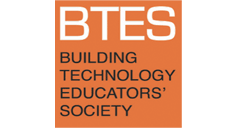Performative Periodic Tessellations: A Study of Parametric, Light-Responsive Façade Systems in the Museum Setting
Abstract
This paper reports on the design and development of responsive façade systems as exemplar case studies for museum applications. Real-time visual outputs generated by physical models and computational simulation engines inform the design and analysis of performative periodic tessellations (PPT) leading to enhanced building–environment interactions. In this paper, different skin tessellation approaches are investigated to regulate solar gain, improve visual experience, and optimize view within the context of museums which can also be applied to other settings. Systematic generation and simulation of responsive façade systems are developed along with a parametric analysis of various tessellation techniques. The final results demonstrate a comparative study between two design iterations through a mixed methodology using physical and digital models where both qualitative and quantitative approaches inform the design, selection, and optimization of shading devices.
Keywords: Parametric, Tessellation, Computational Design, Façade, Museum
How to Cite:
Soleimani, A. & Alani, M., (2023) “Performative Periodic Tessellations: A Study of Parametric, Light-Responsive Façade Systems in the Museum Setting”, Building Technology Educators’ Society 2023(1). doi: https://doi.org/10.7275/btes.1974
Downloads:
Download PDF
532 Views
159 Downloads
